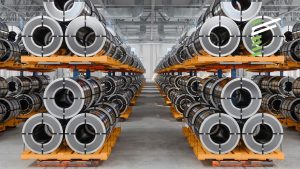At a Glance
- The client, a major polyester manufacturer in Southeast Asia, had operational inefficiencies that were causing financial losses.
- Our in-depth analysis of the client’s operations identified key problems such as excessive waste, quality control issues, and inefficient energy consumption.
- Renoir introduced and implemented a series of initiatives in critical areas including packaging and production, maintenance, and employee engagement, resulting in annual savings of US$4.6 million and a 5:6:1 ROI.
Background
Our client is a diversified industrial group with established operations in chemicals, fibres, textiles, and engineering in Southeast Asia. Their growth strategy prioritises vertical integration and expansion by leveraging their existing market presence. Our client’s domestic textile division is a fully integrated polyester manufacturer positioning itself as a major global player.
Analysis
Following a comprehensive three-week analysis of the client’s textile operations, we identified the following problems:
Excessive waste: The textile industry operates in a highly competitive environment where products are often commoditised, and profit margins are low. In such conditions, it is important to optimise existing capacity through efficient utilisation. The company was faced with inefficiencies and resource underutilisation, resulting in financial losses. Specifically, we observed excessive waste generation due to limited awareness of cost implications and inadequate control of operational response times, particularly in response to yarn breaks throughout the production process.
Quality control: Our client lacked data analysis to identify the most profitable products, and therefore failed to prioritise product specific quality issues. It also lacked a transparent and consistent approach to addressing quality issues across the plant.
Packaging optimisation: Insufficient emphasis was placed on maximising the reusability of expensive packaging materials, particularly during inter-plant transfers. There was also limited exploration of innovative packaging design solutions to reduce costs.
Inventory management: Inconsistent information availability led to excessive inventory levels, resulting in increased holding costs and significant amounts of slow moving or non-moving stock. There was also a lack of clear supplier evaluation procedure.
Maintenance practices: Maintenance activities were primarily reactive, with limited evidence of a structured, plant-wide preventive maintenance programme. Fragmented management within the maintenance department resulted in inadequate control over mechanics and technicians.
Inefficient energy consumption: The company’s production processes consumed more energy than was optimal, resulting in higher operating costs. Energy management was seen as a technical issue, making it difficult to identify and implement cost-saving measures.
Excessive manpower: The presence of excess manpower in certain areas of the business contributed to inefficiencies and increased operating costs. To mitigate the financial impact of a mandated minimum wage increase, the company sought to restructure its operating shifts, which included reducing the work week from 48 to 40 hours while minimising overtime payments.
Limited visibility into costs and order fulfilment: There was a lack of visibility into the cost or impact of product changes in different areas of the plant. The lack of established minimum order size guidelines also resulted in unprofitable orders being filled, further impacting the company’s financial performance.


Meeting the growing demand for steel: A focus on operational efficiency
Ready for a change in your organisation?
Project Approach
Following a comprehensive off-site training and team building session, a project team of four Renoir consultants and nine task force members from our client’s office was established. The team embarked on a 35-week initiative to address operational challenges at three facilities across the fibre division.
Using Renoir’s Focus Process, management, staff, and the task force from our client’s office, under the guidance of Renoir’s consultants, conducted an exhaustive analysis of the business and its potential for improvement. Nine cross-functional Management Action Teams (MATs) were set up, each comprising a mix of management, staff, task force and consultants. These MATs worked together to address key areas, including:
- Spinning
- Draw twisting
- Texturising and doubling
- Twisting and weaving
- Materials
- Polymerisation and fibre / recycling
- Planning and maintenance
“The Renoir methodology has helped our Group to achieve considerable operational and financial benefits, and more importantly from many senior managers point of view, has enabled the organisation to change the behaviour of its employees, increased the managerial professionalism of its staff, and provided a valuable tool in the form of a continuous improvement team to support future initiatives.”
Implementation
The project delivered a suite of systems and a programme focused on operational excellence:
- Plant-wide balanced scorecard focused on adding value to the company.
- Supervisory short interval control systems for packaging and production.
- Revised electrical, mechanical and utility maintenance systems.
- Energy conservation programme.
- Shop floor control systems for managers.
- Group and individual performance measurement.
- Structured daily and weekly review meetings focusing on problems, root cause analysis and follow-up actions.
To address the challenges in the company’s textile operations, we implemented a comprehensive training initiative. This included four half-day modules on systems, balanced scorecards, problem solving, and managing by numbers, delivered to 395 supervisors and junior managers. Simultaneously, an operator training programme focusing on waste, lost time, and control systems was developed and delivered to over 2,500 operators.
The high-level definition of business processes, competencies, goals, and performance measures were disseminated throughout the organisation through the MATs. These teams played a crucial role in fostering ownership and driving behavioural change, particularly during the Renoir projects, leading to a significant improvement in communication. A steering group of senior management received weekly progress reports from the MATs throughout the project.
Eight members of the original task force received further training and transitioned into an internal continuous improvement team within the research and development department. Using the skills they had acquired, they tackled new improvement opportunities, led the ISO certification, and will serve as a key resource for sustaining the project’s positive impact beyond the project.
Results
US$4.6 million
in annual savings
5:6:1
return on investment (ROI)
Over 3,000 employees received hands-on training
*We have intentionally omitted client-specific details to maintain strict confidentiality.
Are you looking for practical solutions to slash waste and streamline your production processes?











